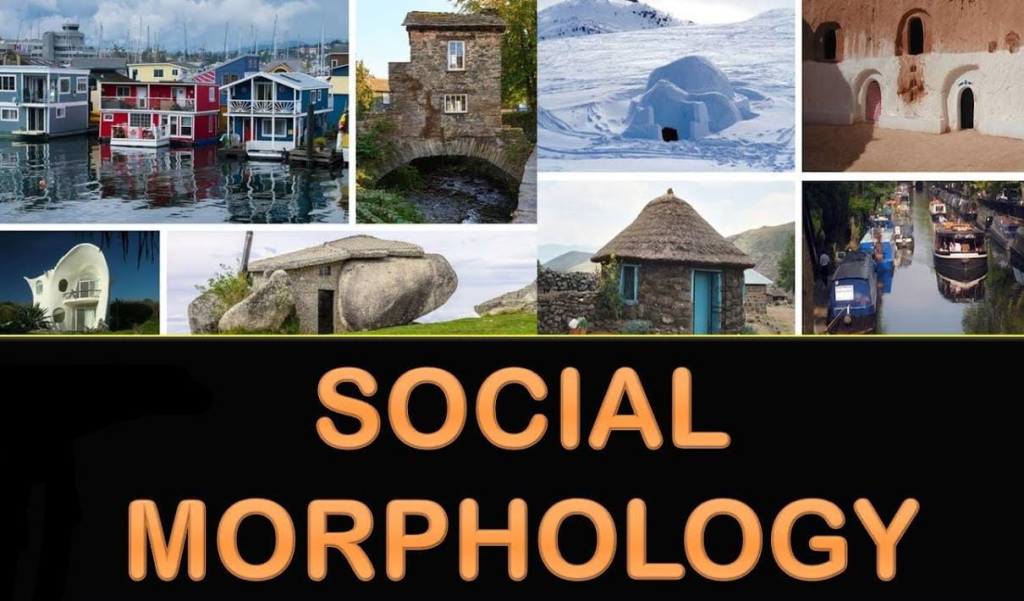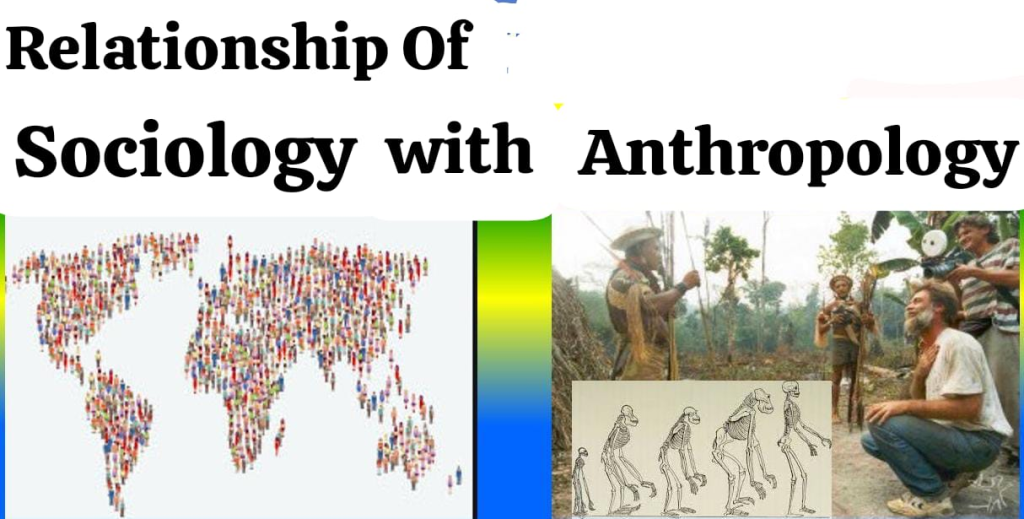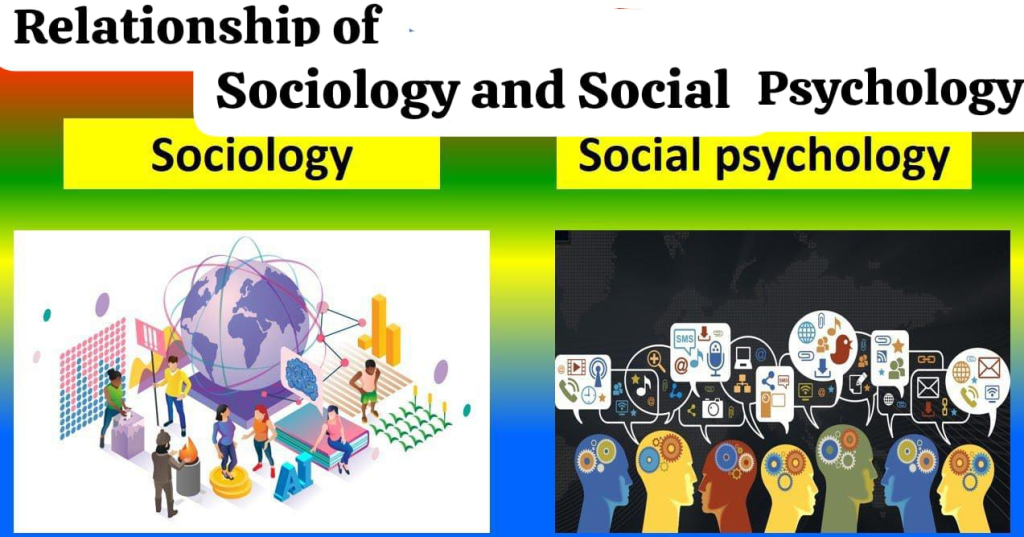ENGLISH-SOCIOLOGY UNIT 1
INTRODUCTION ( Introduction ):

Key Terms:
1.Sociology

Sociology is the study of society.
2.Bias

Inappropriate personal opinion or opinion that influences a decision or judgment.
3.prejudice

Unfair and unjustified perspective (unfair).
4.vague

Not clearly stated or (not clearly stated)
5.science

The systematic study of structure and behavior through observation and experiment.
Introduction ( Introduction ):

- The word sociology was coined in 1839 by the French philosopher ‘Auguste Comte’ .
- It is considered the science of human society and the social science.
- All humans have to interact with other humans to survive.
- Sociology is a word made up of two words sociatus which is a Latin word. It means society. The word Logos is derived from the Greek word Logos. The word Logos means to study or to study.
- Sociology is the scientific study of the society. That is, the scientific study of people living in society is called Sociology.
- The basic component of society is the culture and its structure among the people of the society.
Concept of Sociology :

- Sociology is considered as the study of society Therefore, the basic concept of sociology is society.
- Society is a large collective group that occupies a common geographical area, shares a common culture and social structure, and is expected to follow rules and laws.
- The basic component of society is its culture and structure.
- A society has a culture and rules and regulations that govern the behavior of the society.
Basic Concept of Sociology:

Society:
- A large social group,
- A common geographical area, social structure,
- A common culture.
Culture:
- Knowledge, language, values, customs, and material objects that are passed down from generation to generation in a society.
- Culture includes norms, values, and beliefs.
- Material objects, activities, and technology.
Norms:
- Rules that define what is appropriate or inappropriate behavior according to the standards of a particular society.
- Rules can be in the form of customs or laws.
Sanctions:
- Sanctions are rewards and punishments for appropriate and inappropriate behavior or conduct, respectively.
Values:
- Values are socially agreed upon or accepted ideas (right or wrong), often referring to cultural themes such as individualism, nationalism, etc.
Beliefs:
- Beliefs are ideas about how the world works or should work.
Symbols:
- Symbols represent something like gestures or language.
Social Structure :
- Social structure is the complex structure of social institutions and social practices that make up a society and that organize and constrain people’s behavior.
Status:
- Status is a position in the hierarchy of society.
Roles:
- Roles are a set of expectations, rights, and privileges that accompany a position or status.
Social Group:
- A collection of people who come together for a common purpose.
Institutions:
- A physical institution such as a school or workplace that embodies how things are traditionally done with groups.
Definition of Sociology:

According to L.T. Hobhouse
The Subject – Matter of Sociology is the interaction of human mind. It means how a person’s mind interacts with another person’s mind.
According to Kimball Young
Sociology deals with the behavior of men in groups.
According to H.P. Fair
Sociology is the study of man and his human It is the study of the relationship between the human environment. As we know, society is a web of all social relationships, how an individual is arranged with the members of society, how social he is.
R.E.Park and F. W. Burgess:
According to R.E.Park and F. W. Burgess, sociology is the science of collective behavior. Human society is made up of individuals, each person needs another person, due to dependence, each person comes into contact with another person.
According to L.F.Ward
Sociology is the Science of Society and Social Phenomena
According to Young and Mack
Sociology is the scientific study of the structure of social life. Sociology uses scientific methods such as sociometry, interview methods, etc. The framework of social structure includes the role of the individual in society, culture, values, etc.
According to Gillin and Gillin
Sociology is the Study of Interaction arising from the Association of Living Beings.
Nature of sociology:

There is controversy about the nature of sociology as a science. Some critics do not consider sociology to be a science, but some do.
A) Sociology Cannot be Regarded as a Science:

1. In society we do not use any laboratory for experiments because, in the case of other physical sciences, no prediction is possible. On the other hand, the subject of sociology is human relations in a group which cannot be studied in a laboratory.
2. The second is the lack of objectivity or objectivity. A person’s behavior is dynamic, there may be biases, prejudices about other people or races. Using the scientific method, a person cannot maintain complete objectivity or objectivity with the objectives of his experiments like a physician, so it is not possible for him to observe his subject with complete objectivity.
3. The third is the lack of precision. The precision of science depends on its subject matter. Science should be able to formulate certain laws based on observation and hypothesis. Such laws should enable us to make accurate predictions so that sociology cannot be considered a science due to its lack of predictability and its rules and results cannot be expressed in precise terms.
4. Fourth, sociology lacks a precise and clear definition or terminology.
Sociology has not yet developed a sufficient set of scientific terms. Unless we use words that have a precise and clear meaning, not vague meaning, sociology cannot be a science.
B) Sociology Is a Science:

1. Sociometry, Questionnaire, Interview and Care Sociology uses the scientific method as a scale for history.
2. The basic methods of scientific inquiry are available to the sociologist: observation and comparison.
3. Some experiments do not require a lab, as another example of the study of astronomy is related to the experiments of Newton and Archimedes.
4. It seeks laws that can be applied to the social practices of a community in general.
5. It studies causal relationships, such as the relationship between urbanization and family disorder. studies.
6.He studies his subject scientifically.
scope of sociology. (Scope of Sociology)

- Sociology is a very fast-growing subject. Which is developing very rapidly for the study of different phases of human social life in society.
- The following sub-divisions are developing in sociology.
Social Morphology

In this, the geographical study of life is done and the problems of population are also studied.
Social Physiology

This is a branch of sociology dealing with social facts.In which religion, morals, ethics, language etc. are studied in terms of sociological aspects.
General Sociology

In which general information about the relationship between society and the person living in it Characteristics are studied.
Rural Sociology

In which sociology related to rural areas is studied.
Industrial Sociology

Industry and the people who work in and live in the industry are studied in sociology.
Urban Sociology

The scientific study of individuals living in urban areas and their society is included in it.
Educational Sociology

In this, scientific study of education-related matters among the people of the society is done.
Occupational Sociology (Occupational Sociology)

In this, sociology related to the people living in the society and their different occupations is studied.
Cultural Sociology

In this scientific study of different people living in a society and their different cultures Study is being done.
Political Sociology:

In this different political groups as well as political Scientific studies related to the activity are conducted.
In addition, in sociology, scientific studies are conducted on Medical Sociology, Military Sociology, Sociology of Family as well as various other branches of sociology.
Relationship with other social sciences:

1.Relationships of sociology with anthropology

- Anthropology is the study of humanity.
- A.L. Kroeber called sociology and anthropology twin sisters. is.
- Anthropology is derived from two Greek words ‘anthropos’ meaning man and ‘logos’ meaning study.
- Thus anthropology means the study of man. For example, the study of the development of mankind.
- It is divided into physical and cultural anthropology.
- Cultural anthropology is again divided into sub-types. For example, social anthropology, metaphysics, ethnography, ethnology, linguistics. This means that anthropology studies all types of sociology for different cultures.
- Modern social anthropology has developed an approach that is relevant to any field, Western or non-Western, and thus challenges ethnocentrism, ready for cross-cultural comparisons.
However, it is attentive to possible universals. The practice of participant observation over a long period of time is now standard. - Social anthropologists possess a unique culture, which is taken as a necessity for a nation to understand.
The discipline long ago emphasized the pre-literate society was moved to areas with literate people and word regions. - It has been extended more systematically to the study of peasant and urban groups.
- For both the powerful and the powerless, and for the whole range of capitalist society.
- So sociology has to rely on our knowledge of the past to understand the social events of the present, and it also relies heavily on the material provided by sociology.
Difference between Sociology and Anthropology
Sociology
- Sociology studies the dynamic and vast culture.
- Sociology studies the events that are happening right now.
- The study of sociology is specialized in nature.
- Sociologists use their studies to suggest long-term improvements.
- Sociology is concerned with social institutions.
- It uses documents and surveys.
- It studies various aspects and problems of society and provides guidance for changing them.
Anthropology
- Anthropology studies cultures that are small and stable in nature.
- Anthropology is the study of man and his culture.
Anthropology has developed over a long period of time. is. - The study of anthropology is of a general nature.
- Anthropologists are more neutral and do not give suggestions.
- Anthropology is mainly concerned with man.
- It uses a functional method.
- It studies the whole.
Relationship of Sociology with Psychology

Sociology and Psychology are related to each other.
Knowledge of human behavior with an interdisciplinary approach to understanding human needs in the context of broader social problems.
Psychology understands the behavior of individuals, the personality of individuals, the psychosocial needs, the cultural needs of specific groups, and the psychology of these.
There is a great deal of overlap between psychology and sociology.
Difference between sociology and psychology
Sociology
- Society is the basic unit.
- It is the science of society that studies the relationships between individuals.
- Sociology analyzes social processes.
- Sociology studies individual behavior from the perspective of society.
- It studies man as a part of a social system and Social institutions and social processes will be used in social action reactions.
Psychology
- The individual is the basic unit.
- It is the science of the experience of human behavior.
- Psychology analyzes mental processes.
- Psychology studies the human condition from a psychological perspective. Studies behavior.
- Studies man as an individual and the interaction of heredity and environment with his or her actions, mental and psychological processes.
Relationship of sociology and social psychology

- Social psychology is an important and long-standing field that has developed since the first decade of this century.
- William McDiggle introduced the term social psychology in 1908.
- However, its terrain is not well defined.
- Within the framework of psychology, social psychology focuses specifically on the study of face-to-face social interactions.
- It makes significant use of experimental studies of small groups.
- However, sociology is more social psychology, particularly influenced by methods such as symbolic interactionism and participant observation.
Difference between sociology and social psychology
Sociology
- A group of people can be studied at a time.
- Sociology is the study of social processes, social laws, and social values.
- Sociology discusses the structure and functioning of society.
Social psychology
- It studies the behavior of individuals in society.
- Social psychology studies the mental processes of individuals. is.
- It is a personal study of cultural and social values and attitudes towards laws related to these attitudes.
Importance of Sociology in Nursing Profession (Importance of Sociology in Nursing Profession):

- It is a very important branch for the scientific study of society and the people living in society.
- The study of sociology is very important for many issues related to the nursing profession, the patient, the treatment of the patient, and the hospital and health care team.
- Sociology is very important for hospital staff in understanding the culture of the patient and his social life.
- Through the study of sociology, different religions of different people and their castes and There is a variety of information about the community.
- During the treatment of the patient, the customs, certain beliefs, etc. related to him can be taken into account during the treatment and treatment can be provided.
- The study of sociology maintains cooperation and team spirit among individuals. While working with patients in the hospital as a nurse, team spirit and cooperation can be achieved through the study of sociology.
- Through the study of sociology, social relationships can be maintained well during the treatment of the patient, his recovery, and also in the different types of nursing care provided to him, and the patient’s confidence can be won.
- While working in the community, through the study of sociology, information about the culture and knowledge of the community and the people living there is obtained through the study of sociology, and along with this, sociology is also very important in preventive services.
- Different branches of sociology Sociology has also played a very important role in various aspects of nursing such as industrial nursing, public health nursing through development.
- Through the study of sociology, social problems arising during treatment can be understood and resolved so that good treatment can be given to the patient.
- Thus, through the study of sociology, high quality patient care can be provided and patient participation can also be achieved.

FOR UNLOCK 🔓 FULL COURSE NOW. MORE DETAILS CALL US OR WATSAPP ON- 8485976407
To unlock the full course 🔓 or for more information, contact or whatsapp the following number.-
8485976407